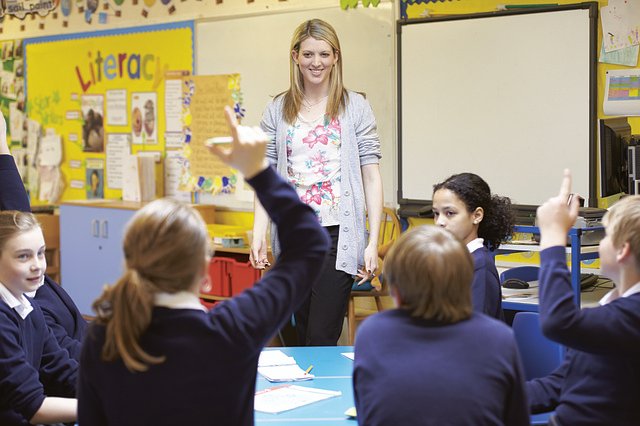This post is sponsored by Turnitin
The importance of empowering students to use academic behavior as a springboard for lifelong values
The International Center for Academic Integrity defines academic integrity as, “a commitment, even in the face of adversity, to six fundamental values: honesty, trust, fairness, respect, responsibility, and courage.”
These six values are hardly restricted to the school campus. They form a cornerstone of what educators hope to inspire in students as they grow – not only academically, but emotionally and holistically, as small humans who are then guided into adulthood. While some of these values are certainly taught early in family settings — or just reside intrinsically in a student’s personality—there is always room to reinforce them and classrooms are a great place to do it.
Putting these ideals into practice in the classroom can be as simple as modeling integrity from the front of the classroom, or as specific as gently correcting occasional slides into the gray area of “borrowed” work.
The majority of students don’t sit down to a notebook or computer screen planning on plagiarizing or stealing someone else’s efforts. It can be a tricky concept to sink in for young minds, that using knowledge from others is both expected and celebrated, when properly cited. But lacking the attribution, it suddenly morphs from unearthing a supporting argument to a theft. In some cases, it can be as innocent as there seeming to be no other clear way to state a fact or summary.
Examples of questionable use are all around kids, from sampled bars in pop songs to fan fiction writing and doctored screenshots of popular characters posted on social media. How similar is too similar? Teachers who navigated remote learning faced additional challenges when it came to upholding academic integrity. It is easy to see how students could struggle to understand where that line lies. Educators need to support students in making the right choice.
This is why teaching integrity in the classroom is such a meaningful and important task to take on as educators. We have the opportunity to mold these impressionable minds into honest, fair, respecting citizens who honor the work of others and don’t shortchange themselves on the beauty of the organic learning experience. One of the most impactful ways of teaching new skills is to demonstrate and then offer the tools the students need to take on the challenge on their own. Fortunately, this is where technology can step in to lend a hand.
Turnitin Draft Coach is a Google Docs add-on that helps students improve on the mechanics of their academic writing and research. Features like Similarity Checks give kids a chance to analyze their work before pressing that final “submit”. They can easily see where they crossed the line of borrowing too heavily or lacked proper source citation, before presenting their work to be graded. This can help with workload and save precious learning hours for educators. A side effect of this particular tech is the teacher’s ability to gain deeper insight into the student’s process, helping them become stronger writers. Supporting formative feedback gives students confidence, rather than demoralizing reprimands.
“We can see where this helps students improve their academic writing and research skills while providing instructors with additional insight into student learning,” said Tech & Learning judges, giving it a Best of Show nod at the ISTE Awards. The business world also took note, awarding the 2021 Gold Stevie winner for Learning Capacity-Building Solution to Turnitin Feedback Studio. Educators can take even take this lesson to the next level, using the Source Credibility pack features to help students determine valid references — an invaluable skill in these times.
Character education is as vital as traditional classroom subjects. Students deserve to fully understand these concepts. The consequences of glossing over this particular lesson only get more dire as the school years pass. Building a culture of academic honesty is critical for any positive and productive learning environment, and the strongest foundations are made by using the right tools for the job.
